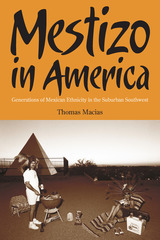3 books about San Jose

Activist Leaders of San José
En sus propias voces
Josie Méndez-Negrete
University of Arizona Press, 2020
The community of San José, California, is a national model for social justice and community activism. This legacy has been hard earned. In the twentieth century, the activists of the city’s Mexican American community fought for equality in education and pay, better conditions in the workplace, better health care, and much more.
Sociologist and activist Josie Méndez-Negrete has returned to her hometown to document and record the stories of those who made contributions to the cultural and civic life of San José. Through interview excerpts, biographical and historical information, and analysis, Méndez-Negrete shows the contributions of this singular community throughout the twentieth century and the diversity of motivations across the generations.
Activists share with Méndez-Negrete how they became conscious about their communities and how they became involved in grassroots organizing, protest, and social action. Spanning generations, we hear about the motivations of activists in the 1930s to the end of the twentieth century. We hear firsthand stories of victories and struggles, successes and failures from those who participated.
Activist Leaders of San José narrates how parents—both mothers and fathers—were inspired to work for the rights of their people. Workers’ and education rights were at the core, but they also took on the elimination of at-large elections to open city politics, labor rights, domestic abuse, and health care. This book is an important record of the contributions of San José in improving conditions for the Mexican American community.
Sociologist and activist Josie Méndez-Negrete has returned to her hometown to document and record the stories of those who made contributions to the cultural and civic life of San José. Through interview excerpts, biographical and historical information, and analysis, Méndez-Negrete shows the contributions of this singular community throughout the twentieth century and the diversity of motivations across the generations.
Activists share with Méndez-Negrete how they became conscious about their communities and how they became involved in grassroots organizing, protest, and social action. Spanning generations, we hear about the motivations of activists in the 1930s to the end of the twentieth century. We hear firsthand stories of victories and struggles, successes and failures from those who participated.
Activist Leaders of San José narrates how parents—both mothers and fathers—were inspired to work for the rights of their people. Workers’ and education rights were at the core, but they also took on the elimination of at-large elections to open city politics, labor rights, domestic abuse, and health care. This book is an important record of the contributions of San José in improving conditions for the Mexican American community.
[more]

Captive of the Labyrinth
Sarah L. Winchester, Heiress to the Rifle Fortune, Revised and Updated Edition
Mary Jo Ignoffo
University of Missouri Press, 2022
Captive of the Labyrinth is reissued here to commemorate the 100th anniversary of the death of rifle heiress Sarah L. Winchester in 1922. After inheriting a vast fortune upon the death of her husband in 1881, Winchester purchased a simple farmhouse in San José, California. She built additions to the house and continued construction for the next twenty years. When neighbors and the local press could not imagine her motivations, they invented fanciful ones of their own. She was accused of being a ghost-obsessed spiritualist, and to this day it is largely believed that the extensive construction she executed on her San José house was done to thwart death and appease the spirits of those killed by the Winchester rifle.
Author and historian Mary Jo Ignoffo’s definitive biography unearths the truth about this reclusive eccentric, revealing that she was not a maddened spiritualist driven by remorse but an intelligent, articulate woman who sought to protect her private life amidst the chaos of her public existence and the social mores of the time. The author takes readers through Winchester’s several homes, explores her private life, and, by excerpting from personal correspondence, one learns the widow’s true priority was not dissipating her fortune on the mansion in San José but endowing a hospital to eradicate a dread disease.
Sarah Winchester has been exploited for profit for over a century, but Captive of the Labyrinth finally puts to rest the myths about this American heiress, and, in the process, uncovers her true legacies.
Author and historian Mary Jo Ignoffo’s definitive biography unearths the truth about this reclusive eccentric, revealing that she was not a maddened spiritualist driven by remorse but an intelligent, articulate woman who sought to protect her private life amidst the chaos of her public existence and the social mores of the time. The author takes readers through Winchester’s several homes, explores her private life, and, by excerpting from personal correspondence, one learns the widow’s true priority was not dissipating her fortune on the mansion in San José but endowing a hospital to eradicate a dread disease.
Sarah Winchester has been exploited for profit for over a century, but Captive of the Labyrinth finally puts to rest the myths about this American heiress, and, in the process, uncovers her true legacies.
[more]

Mestizo in America
Generations of Mexican Ethnicity in the Suburban Southwest
Thomas Macias
University of Arizona Press, 2006
How much does ethnicity matter to Mexican Americans today, when many marry outside their culture and some can’t even stomach menudo? This book addresses that question through a unique blend of quantitative data and firsthand interviews with third-plus-generation Mexican Americans. Latinos are being woven into the fabric of American life, to be sure, but in a way quite distinct from ethnic groups that have come from other parts of the world. By focusing on individuals’ feelings regarding acculturation, work experience, and ethnic identity—and incorporating Mexican-Anglo intermarriage statistics—Thomas Macias compares the successes and hardships of Mexican immigrants with those of previous European arrivals. He describes how continual immigration, the growth of the Latino population, and the Chicano Movement have been important factors in shaping the experience of Mexican Americans, and he argues that Mexican American identity is often not merely an “ethnic option” but a necessary response to stereotyping and interactions with Anglo society.Talking with fifty third-plus generation Mexican Americans from Phoenix and San Jose—representative of the seven million nationally with at least one immigrant grandparent—he shows how people utilize such cultural resources as religion, spoken Spanish, and cross-national encounters to reinforce Mexican ethnicity in their daily lives. He then demonstrates that, although social integration for Mexican Americans shares many elements with that of European Americans, forces related to ethnic concentration, social inequality, and identity politics combine to make ethnicity for Mexican Americans more fixed across generations. Enhancing research already available on first- and second-generation Mexican Americans, Macias’s study also complements research done on other third-plus-generation ethnic groups and provides the empirical data needed to understand the commonalities and differences between them. His work plumbs the changing meaning of mestizaje in the Americas over five centuries and has much to teach us about the long-term assimilation and prospects of Mexican-origin people in the United States.
[more]
READERS
Browse our collection.
PUBLISHERS
See BiblioVault's publisher services.
STUDENT SERVICES
Files for college accessibility offices.
UChicago Accessibility Resources
home | accessibility | search | about | contact us
BiblioVault ® 2001 - 2024
The University of Chicago Press









